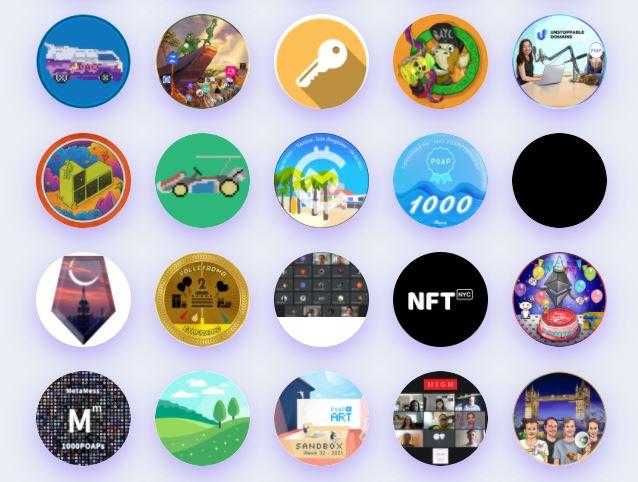NFTs have taken the world by storm, and if you’re new to the industry, it can be easy to feel like you’re late - but you’re not. It’s early, and we’ve just begun to see NFTs as not only art but as utilities, and that’s where things get exciting.
This craze is reminiscent of the ICO boom, but I believe NFTs won’t fall off like the coin offerings did. I am certain that they will keep their upward momentum and push their way into mainstream culture. NFTs started as a way to express and use art on the blockchain, but now we are seeing that these tokens can be used for an insane amount of utility.
Utility
In simple terms, utility references the perks that come with obtaining an NFT. Whether it be a shirt from a drop, free tokens, or even the ability to use your NFT in a video game, such as Axie Infinity. One of the first instances of NFTs providing utility was with Meebits. Larva Labs, who launched CryptoPunks, later launched Meebits and allowed any CryptoPunks holders to mint a Meebit for free. The idea of using a previously-existing NFT as a key to minting something from a future project is a fantastic example of an NFT providing utility. You can even use NFTs to gain access to exclusive rewards with MyCrypto Memberships. What else could NFTs be used for with utility?
Proof of Attendance Protocol
The Proof of Attendance Protocol is a cool NFT project, the tokens of which (called POAPs) are minted on xDAI with the ability to migrate to mainnet Ethereum. The tokens act as proof on the blockchain that you attended a certain event, whether in-person or virtually. POAPs have been gaining popularity as of late and are often used as a way to send a token (heh) of appreciation for early supporters of projects. Imagine you have a new project launching and you want to reward the first 1000 users who join the Discord - you can drop them a POAP, give them early access to mint the NFT, access to a private Discord channel, and a lot more.

Donations
Care Package, an awesome project created during the fall of Afghanistan to provide financial assistance to displaced families in need, was one of the first I had seen to use NFTs where a full 100% of the proceeds went to its stated cause.
Each edition of this NFT covers one Afghan family’s emergency needs for a month.
— jack butcher (@jackbutcher) August 16, 2021
If you can't help financially, please consider a RT.
↓ https://t.co/psxeBGBIhC pic.twitter.com/ocEI1RMwYW
Bored Ape Yacht Club has also been able to donate a large percentage of their sales to Animal Charities.
It’s an exciting day for us here at the BAYC – we just donated 135 ETH (currently ~$291,000) to animal charities! We started the Bored Ape Kennel Club collection to reward members and give back, but never imagined we’d have this level of impact. Thank you, apes. pic.twitter.com/HzT0xMH7FR
— Bored Ape Yacht Club (@BoredApeYC) June 30, 2021
That’s a lot of dough.
Rainbow Rolls NFT just dropped a new project with blessings from a lot of the crypto world. They are planning on donating a good chunk of their revenue straight to three charities.
1/🌈🧻Rainbow Rolls🌈🧻 secondary market sales revenue ALSO donates 20% to @RIPMedicalDebt.
— RainbowRolls.eth 🌈🧻 (@rainbow_rolls) October 7, 2021
This is a fundamental paradigm shift in non-profit, public goods, and charity fundraising. Thread to read on the pooper 🚽👇
The Future
Are NFTs still going to be a thing 20 years from now? Yes, absolutely. NFTs are the perfect bridge from a blockchain that is hard to understand for the common person, to the real world. Larger companies are just getting into crypto and NFTs. Budweiser purchased an ENS name: Beer.eth. Visa purchased a CryptoPunk, as did Jay-Z and Jason Derulo. Not only are they owning these items, but they are showing them off as their profile pictures. This will push the regular crowd and especially the younger generation to get into them.

Rewards
I cannot wait until I can go to a restaurant to order my favorite meal item and instead of a punch card, I will have a digital NFT ERC-1155 token that works as a reward system. Being able to buy items with a digital rewards card that can send me tokens that I can in turn redeem or burn for a free meal, gift card, or swag would be incredible.
Another example: Say I earned a free sandwich at a certain restaurant but didn’t want to use it. Someone could buy it from me and the restaurant would still receive a percentage of the transaction.
Another interesting use case emerged recently in the form of Burger King’s: Keep It Real Meals. They gave out NFTs minted on the Polygon Network as virtual game pieces. Think how cool it would be for the McDonald’s monopoly game to be played with codes used for redeemable Monopoly NFTs. Super cool if you ask me. I hope more companies do this to help push NFTs more into the mainstream markets.
Coupons
This is along the same parallel as rewards, but an organization could drop coupons in your account randomly. The company would know what address you were using and could easily airdrop burnable coupons to your account. Eventually, if bigger and more known companies start accepting crypto, they could send NFT coupons straight to your account.
Tickets
Why print your concert or event tickets when the organizer is able to drop you an ERC-1155 NFT ticket directly to your address? As soon as you enter the event, the NFT could be scanned and burned, leaving behind a shell that acts as a memento. Event tickets on the blockchain would also help eradicate fraud, so selling fake tickets would be a thing of the past. If you wanted to sell tickets on the secondary market, you could use a solution like SudoSwap where it creates a contract that waits for a certain requirement or token to be deposited before the deal is finished. This would allow for a decentralized ticket marketplace where users are not paying Ticketmaster or similar companies for massive surcharges when re-selling.

Taxation
Donations could be used as a sort of reverse utility for NFTs. At the moment, there’s a lot of gray area around crypto tax law, but imagine donations that you made on the blockchain came with an NFT that acted as a note on the account that could be used for tax write-offs. Similar to taking old clothes to a thrift store and getting a tax write-off receipt, this could work on the Blockchain. Even beyond this idea, gaining an NFT for making a donation for a charitable cause is a pretty sweet deal.
Another tax angle: If I interacted with 100 dapps in a year and in each one I spent x amount of dollars and made x amount of dollars, an NFT could be produced that displayed my end-of-year gains and losses. The NFT could say just OpenSea (ETH in: 10, ETH out: 10, Net Gain/Loss: 0, Projects Interacted with: 27, Link to transactions: abcdefg.com). It would be similar to the tax forms that individuals receive from employers and other entities each year. No more long transaction lists, just an IN/OUT and spend/loss.
Music and Entertainment
A small-time music artist makes approximately $3-$5 per 1,000 streams of a song. That’s a lot of time and effort to be putting into something that might end up making nothing for them.
Artists can now approach the business in a whole new way and release an album as an NFT - per song or in as a whole. They can give full listening or download rights to those who own the NFT of their album. In addition to this, they can give a lot of utility for the fans that own their pieces. You may end up paying more than normal to own their music, but you also may be able to earn royalties, concert tickets, meet and greets, or more. The music business would benefit from users being able to find and sponsor albums before they are launched - and then be able to gain utility from the album and earn royalties on the number of plays. Think of something like Kickstarter, but rather than having an early item, you receive an NFT that grants you access to early items and more.
The Other Side
Many users get involved in cryptocurrency because of the ideals of privacy, anonymity, and decentralization. The other side of that coin is the complete transparency and immutability that the blockchain affords. Many of these NFTs-as-a-utility ideas would remove a level of anonymity, especially when it comes to real world redemptions. Most users will have to figure out a healthy balance and will need to adjust for their own preferences, but all of these NFT use cases are quite exciting. Time will tell, but the point remains -- we’re still early. wagmi